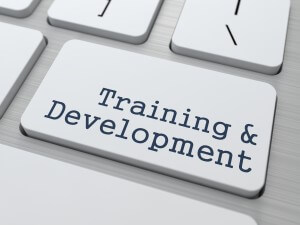There are many ways in which we can learn to be successful and effective at work. The 70:20:10 learning mix was first proposed by McCall, Lombardo and Eichinger who based their conclusions on studying high-performing managers. But maybe it’s time to re-think this model.
based their conclusions on studying high-performing managers. But maybe it’s time to re-think this model.
At the start of this millennium, the 70:20:10 learning concept was published by Michael M. Lombardo and Robert W. Eichinger in “The Career Architect Development Planner”, 3rd edition. The theory behind their 70:20:10 learning mix was that the success of high-performing managers was based on them learning how to be a good manager in the following ways:
70% from doing challenging jobs
20% from other people (mostly their own line manager)
10% from attending formal training events, such as management courses
A more recent survey of 13,000 managers found that rather than following the 70:20:10 learning model, today’s successful managers actually spend 55% of their time learning on the job, 25% learning from others in the work place and 20% on formal training. So highlighting the increasing importance in today’s fast paced business environment of regular refresher training.
But there is a bigger problem facing those tasked with developing talent than simply trying to people to attend more training courses. Whether the model is 70:20:10 or 55:25:20, many training departments are failing to develop the people in their organisation effectively because they fail to put in the right level of support for the “on-the-job” parts of the learning (the 70:20 or 55:25 parts).
For people to develop following formal training sessions they often need to change their old habits. This can be hard, because our habits drive 70% of what we do at work. New ways of thinking and doing must, therefore, become habitual if they are to become embedded in how the person performs their job. And this requires a lot of support from their own manager.
Line Managers must be able to help their direct reports identify the cue that the new way of "doing" something is required, help them carry out the actions and provide positive reinforcement when they do. In other words they need to become expert coaches. In a randomised controlled study by Granta, Curtaynea and Burtona
coaching enhanced goal attainment, increased resilience and workplace well-being, increased self-confidence and personal insight, built management skills and helped participants deal with organisational change.
Unfortunately, many managers either don't know how to coach people for high performance, or don’t realise the importance of regular coaching sessions. Appropriate training of your management team is, therefore, vital for the success of any training and development initiative.
